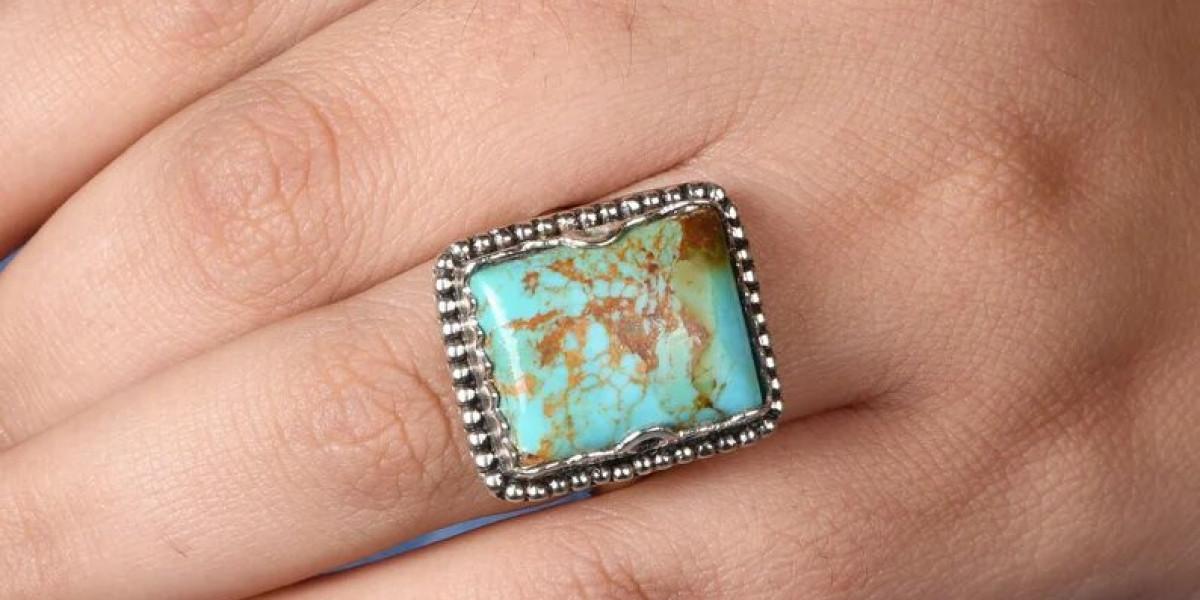Turquoise rings have captivated jewelry lovers for centuries with their mesmerizing blue-green hues and storied symbolism. This semi-precious gemstone is not only prized for its aesthetic appeal but also revered for its cultural significance and believed healing properties. In this article, we will explore the history, uses, benefits, and potential disadvantages of wearing a turquoise ring.
History and Symbolism of the Turquoise Ring
Turquoise has been treasured for over 5,000 years, with origins traced back to ancient Egypt, Persia, and Native American cultures. Turquoise rings were often worn by royalty and warriors, symbolizing protection, wealth, and spiritual wisdom.
- Ancient Protection Symbol: In many cultures, turquoise rings were thought to protect from harm, both physical and spiritual.
- Cultural Significance: Native American tribes believe turquoise represents the connection between the earth and sky, and wear turquoise rings as a spiritual amulet.
- Modern Appeal: Today, turquoise rings remain popular as fashion statements while still carrying some of these ancient meanings and beliefs.
Uses of a Turquoise Ring
Wearing a turquoise ring can have both aesthetic and symbolic uses, as well as applications in alternative medicine practices. Here’s a look at the primary uses of a turquoise ring:
- Fashion Accessory: The turquoise ring's unique, vibrant colors make it a standout piece in any jewelry collection, suitable for everyday wear or special occasions.
- Spiritual Amulet: Many believe a turquoise ring can ward off negative energy and promote emotional balance, making it a staple in energy healing practices.
- Alternative Healing: Some people wear turquoise rings to help soothe symptoms of stress and achieve mental clarity, as turquoise is said to be calming and grounding.
Benefits of Wearing a Turquoise Ring
A turquoise ring is more than just a stylish piece of jewelry; it comes with a range of benefits that appeal to those interested in spirituality, mental wellness, and overall aesthetics. Here are some of the most notable benefits of wearing a turquoise ring:
1. Emotional and Spiritual Healing
- Promotes Calmness: Many people feel a sense of peace when wearing a turquoise ring, as the stone’s gentle color is thought to calm the mind.
- Balances Emotions: Turquoise is believed to help balance mood swings and bring a sense of inner harmony, making it beneficial for emotional well-being.
2. Physical Health Benefits
- Boosts Immune System: Alternative medicine practitioners suggest that wearing a turquoise ring may help strengthen the immune system and improve the body’s overall vitality.
- Improves Circulation: Some believe that turquoise can improve blood circulation, which may have various health benefits, especially for those who struggle with sluggish blood flow.
3. Enhances Communication and Expression
- Helps with Self-Expression: Turquoise is linked to the throat chakra, associated with communication. Wearing a turquoise ring is said to help those who struggle to express themselves or speak up confidently.
- Encourages Honesty and Articulation: The stone’s energies are believed to support clear and honest communication, making it a preferred choice for people in public-facing or communicative roles.
4. Protection and Good Luck
- Ward-Off Negativity: Many people believe that a turquoise ring acts as a protective talisman, absorbing negative energies that could disrupt the wearer’s mental or physical state.
- Attracts Good Fortune: Turquoise has long been considered a good luck stone, attracting positive energy and favorable outcomes for the wearer.
Disadvantages of a Turquoise Ring
While turquoise rings have numerous benefits, they also come with certain disadvantages that are worth considering:
1. Sensitivity to Chemicals and Moisture
- Easily Damaged: Turquoise is a relatively soft stone (rating 5-6 on the Mohs scale), making it vulnerable to scratches and breakage. Wearing a turquoise ring while engaging in activities like cleaning or sports can risk damaging the stone.
- Avoid Contact with Chemicals: The stone’s porous nature means it can absorb oils, soaps, and chemicals, leading to discoloration or weakening over time. Care must be taken to avoid exposure to lotions, perfumes, and household cleaners.
2. Color Fading and Changes
- Prone to Color Changes: Turquoise can change color over time due to exposure to sunlight or moisture. If a turquoise ring is frequently worn outdoors or near water, the color may fade or dull.
- Not Ideal for Constant Wear: Because of the stone's delicate nature, wearing a turquoise ring constantly may lead to faster wear and tear compared to more resilient gemstones like diamonds or sapphires.
3. Authenticity and Quality Concerns
- Prevalence of Imitations: Genuine turquoise can be expensive, and the market is saturated with lower-quality or synthetic stones. Buyers must exercise caution when purchasing a turquoise ring to ensure they’re getting a genuine gemstone.
- Color-Treated Stones: Some turquoise rings may have stones that have been dyed or treated to enhance color. These treatments can reduce the stone’s longevity and authenticity.
Caring for Your Turquoise Ring
Taking proper care of a turquoise ring can extend its lifespan and maintain its vibrant color. Here are a few tips to help keep your turquoise ring in pristine condition:
- Store Properly: Keep your turquoise ring in a soft pouch or lined jewelry box to avoid scratches or damage from harder gemstones.
- Clean Gently: Use a soft, damp cloth to clean your turquoise ring, avoiding harsh chemicals or ultrasonic cleaners.
- Limit Exposure to Water: Turquoise is porous, so avoid submerging it in water. Remove your turquoise ring before swimming, bathing, or washing dishes.
- Polish Sparingly: Too much polishing can erode the stone, so use a gentle touch and limit polishing to occasional times only.
Conclusion
A turquoise ring is a captivating piece of jewelry that not only adds a splash of color to any outfit but also offers emotional, physical, and spiritual benefits for those who believe in its properties. While there are some potential downsides, like its susceptibility to damage and the prevalence of imitations, the unique charm and ancient symbolism of turquoise continue to make it a beloved gemstone choice. Whether you’re drawn to the turquoise ring for its aesthetic appeal or its reputed healing properties, it’s essential to understand both the benefits and challenges that come with this timeless gem.








